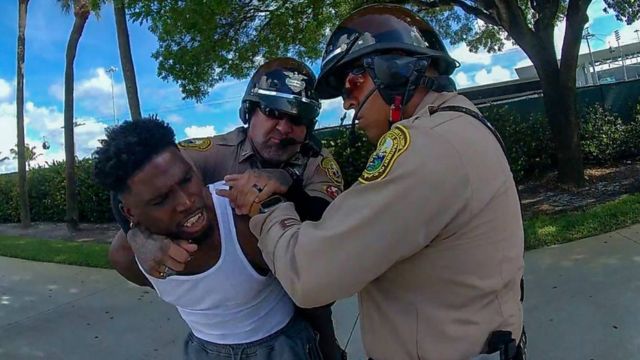Aiexpress – Have a wonderful year ahead. Please step back now.
On January 1, Florida’s new law will protect first responders from people who are “impeding, threatening, or harassing” them.
This year, lawmakers passed a bill that became law and was signed by Gov. Ron DeSantis in the spring. It is known as the “Halo Law.”
How the law for first responders fits in
Senate Bill 184, the new law, says that people must stand at least 25 feet away from a first responder who tells them to move back while the responder is working.
If you don’t move back when asked and are seen to be bothering or blocking first responders, you could be charged with a second-degree crime under the “Halo Law.”
The charge could lead to up to 60 days in jail. You might also get a $500 fee.
New law says that to “harass” a first responder means to “willfully engage in a course of conduct directed at a first responder that intentionally causes substantial emotional distress in that first responder and serves no legitimate purpose.”
What does a first responder do?
A police officer, a probation officer, a firefighter, or someone who gives emergency medical care is considered a “first responder” by the state.
Some police officers have said good things about the new safety zone law.
As reported by NBC6, Polk County Sheriff Grady Judd backed the new rule and said, “You can video police officers; that’s your constitutional right.” “But you should let them do their work without getting in the way.”
But the Florida branch of the ACLU was against the bill because its members think it could make bystanders criminals and give police more power to hide from the public.
ACLU Florida wrote online, “SB 184 has nothing to do with what its title suggests.” “The whole point of this bill is to stop people from seeing an officer use too much force and then taking pictures of it with their cell phone or another device so that everyone can see them.” The goal and result of this bill is to make police less open and accountable by making sure there are no witnesses or recorded evidence of any excessive use of force.
Videos of cops handcuffing Tyreek Hill caused a lot of anger.
People who were going to the Miami Dolphins’ season opener in September filmed and shared videos on social media of wide receiver Tyreek Hill getting into a fight with Miami-Dade police just outside of Hard Rock Stadium in Miami Gardens.
Miami-Dade police told Hill to get out of his black McLaren 720 S and held him on the ground next to his sports car. Hill was on his way to the game against the Jacksonville Jaguars. Police said they stopped him because he was going too fast. Police put Hill on the ground and handcuffed him in videos.
After the public videos went viral, the police quickly shared footage from their body cameras that showed Officer Danny Torres pulling Hill from his car by the back of the head, kneeling him down, and handcuffing him. Tores was put on administrative leave with pay.
The Dolphin star got two tickets in November. One was for not wearing a seat belt, which cost $129, and the other was for driving carelessly, which cost $179. In November, the ticket officer, Manuel Batista, didn’t show up to court, so the tickets were thrown out.













Leave a Reply